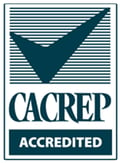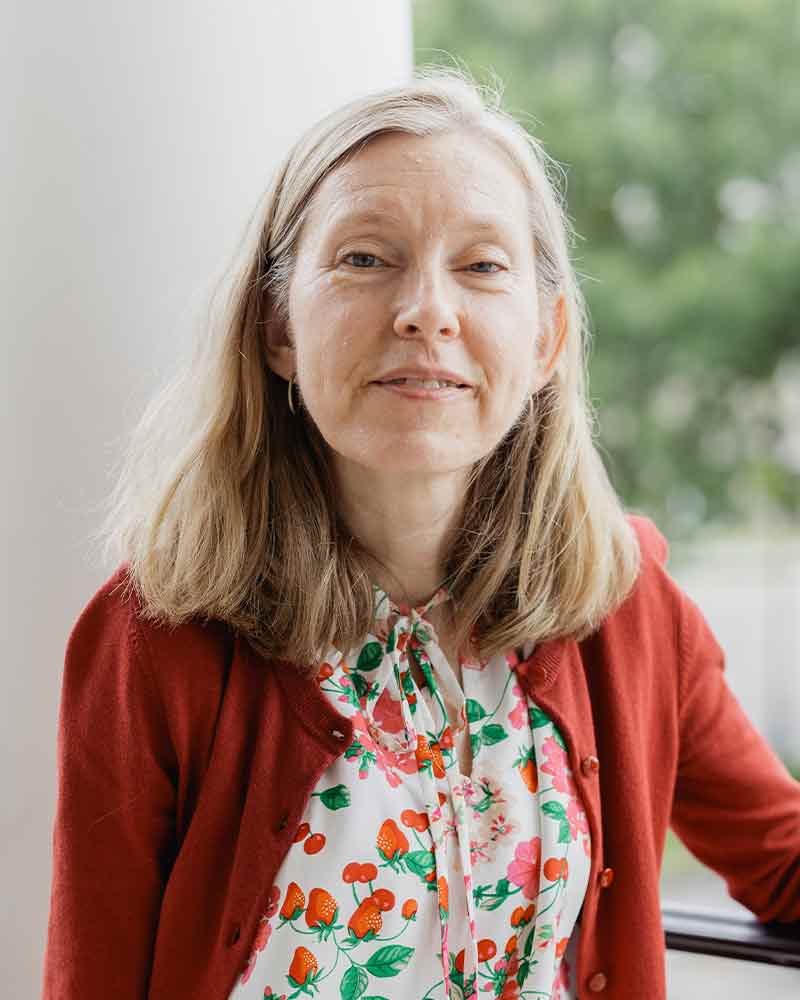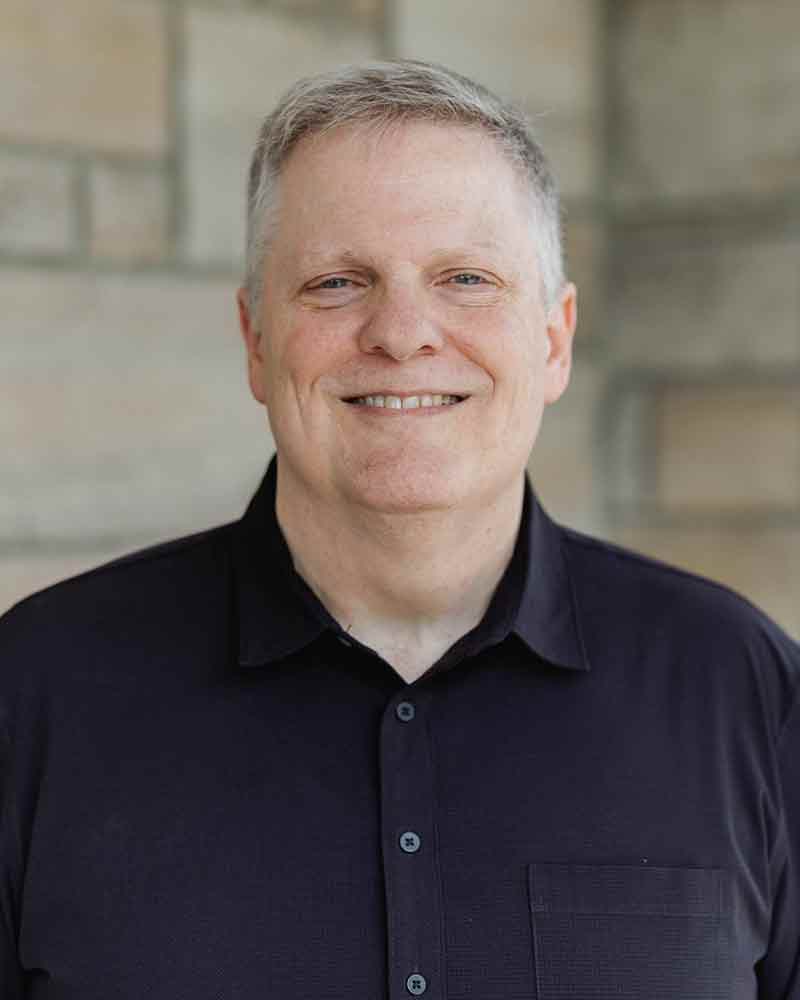Clinical Counseling: Teaching and Supervision
This Ph.D. in clinical counseling equips students to become competent mental health professionals, counselor educators, supervisors, researchers and leaders in the field who use their skills in service to others. This 66-hour program can be completed in about three years.
Want More Info?
Trevecca’s clinical counseling, teaching and supervision Ph.D. program, is accredited by the Council for Accreditation of Counseling and Related Educational Programs (CACREP) and has a strong reputation throughout Middle Tennessee. This doctoral program equips students to use their skills by serving others as mental health professionals, counselor educators, supervisors, researchers, and leaders in the field.
In addition to the traditional face-to-face option, the Graduate Counseling program now offers an online option. Both program options are CACREP-accredited. Both in-person and online students will be part of the same cohort as they journey through the program together. Additionally, both delivery modes will offer students the opportunity to interact in synchronous class options, research projects and discussions with experts inside and outside of our region. The online option will require a 2–3 day residency each semester and includes asynchronous and synchronous learning times.

Before beginning the program, students must choose either the online or traditional option as their primary delivery path for this degree (a hybrid version is not an option).
Program Benefits
- Complete your degree in a little more than three years with the flexibility of attending classes just two half-days each week.
- Utilize a built-in support system and complete your degree alongside others who are working toward similar goals through Trevecca’s cohort model.
- Learn in a collaborative environment with small class sizes.
- Learn from faculty who possess the highest degrees in their fields and have relevant and valuable real-world experience.
What to Expect
Established in 2007, this program provides an integrated worldview emphasizing compassionate service. You’ll enhance your skills as a counselor, understanding and practicing the art of counseling more proficiently at an advanced level. You’ll also be equipped to become an influential leader in the mental health community; to embrace diversity in working with clients and students; to develop and mentor future counselors; to serve as a mental health educator in higher education; and to conduct and publish professional research. You’ll be supported by distinguished faculty members as you explore your unique research interests in collaborative classroom environments.
Why Choose Trevecca?
 Founded in 1901 and a leader in online education for more than two decades, Trevecca helps students discover and pursue an individual calling by providing innovative instruction; cultivating a supportive, Christ-centered community; and establishing relationships that open doors.
Founded in 1901 and a leader in online education for more than two decades, Trevecca helps students discover and pursue an individual calling by providing innovative instruction; cultivating a supportive, Christ-centered community; and establishing relationships that open doors.
Recognized nationally and locally for academic quality, Trevecca has earned a reputation for providing the world with servant leaders, problem solvers and difference makers. Trevecca’s holistic approach to education encompasses intellectual, social, emotional, physical and spiritual growth.
Course Descriptions
Get details on all the courses you’ll complete as you work toward this degree at Trevecca.
Read MoreHere’s a look at the approximate tuition rates you could expect for this program at Trevecca, including the cost per credit hour and the total tuition expense for the full degree program. Please note that rates and fees are subject to change.
Here’s a look at the approximate tuition rates you could expect for this program at Trevecca, including the cost per credit hour and the total tuition expense for the full degree program. Please note that rates and fees are subject to change.
Cost/Credit Hour$799 |
Hours66 |
Tuition Cost*$52,734 |
*$150 Student Resource Fee assessed per course. $150 estimated book cost per course.
- Admissions
- Resources
Application Information
- Application for fall 2025 opens September 1st! Application deadline is February 1, 2025. Submitting the Coursework Verification form and receiving application approval from the program director is the first step before submitting the application.
Application Prerequisites
Due to the Ph.D. Clinical Counseling: Teaching and Supervision’s CACREP accreditation, only an individual who holds a counseling or counseling-related master’s degree may be considered for application. Additionally, all applicants to the program must have completed all (or a large majority) of the CACREP and program prerequisite, master’s-level coursework before they may be considered eligible for admittance to the program.
The following core counseling courses, or equivalency, are prerequisites for admission to the doctoral program:
-
Social and Cultural Diversity
-
Human Growth and Development
-
Group Counseling
-
Career Counseling
-
Helping Relationships
-
Ethics
-
Research
-
Assessment/Testing
-
Advanced Abnormal
-
Practicum/Internship (minimum of two semesters)
Interested in finding out if you’re eligible to apply? Fill out the course verification information here.
Application Checklist
- Complete the Coursework Verification form today! This is the first step to determine application eligibility; approval from the program director is required before submitting the application.
-
Approved to apply? Complete the online application (it's free!).
Need help applying? Read the step-by-step instructions here!
-
Send official transcripts to:
Trevecca Nazarene University
Attn: Graduate Admissions
333 Murfreesboro Pike
Nashville, TN 37210
FAX to 1-888-517-0123
EMAIL to GRAEAdmissions@trevecca.edu -
Transcripts marked "Issued to Student" are not acceptable
1. Have earned a master’s degree in counseling, marriage and family therapy, or similar counseling-related degree from a regionally accredited institution.
2. Official transcripts from all institutions in which graduate-level coursework was completed.3. An official transcript indicating undergraduate degree completed.
-
Official Graduate Record Examination (GRE) score report
Verbal and quantitative combined score of 300 or higher and analytical writing score of 3.5 or higher are expected for admission. Analytical writing score of 4 is preferred.
-
Three (3) completed and signed recommendation forms submitted here
- One (1) character/moral reference- Two (2) references from former professors or employers/supervisors in the counseling field who can adequately evaluate your clinical skills and capacity to complete a doctorate. Applicants will need to send recommendation form link to their recommenders.
-
A 400-word Letter of Intent
Specify your purpose and goals for entering the Ph.D. program. Email the Letter of Intent as a PDF to hambrefe@trevecca.edu.
-
Professional/Curriculum Vita
Include degrees earned, ministry and/or counseling experience, any research and/or professional presentation experience, and career goals. Email Professional/Curriculum Vita as a PDF to hambrefe@trevecca.edu
* Have questions? Contact the Enrollment Counselor with your questions at hambrefe@trevecca.edu or 615-248-1546
Application documents
Please submit application after Coursework Eligibility Verification is approved by Director of Admissions.
Career Opportunities
Trevecca’s clinical counseling Ph.D. for teaching and supervision is an advanced professional doctoral degree that prepares students for roles like these:
- Professional mental health researcher
- Counselor educator
- Private Counselor
- Clinical Supervisor
Our Faculty
-

Julie Barnes
Associate Professor, Graduate Counseling
Read Full BioJulie completed her undergraduate studies at Cumberland University and her graduate studies at Trevecca. Prior to becoming full-time in the Graduate Counseling Program, she served as an adjunct professor. She is a ...
-

Donald Harvey
Professor, Graduate Counseling
Read Full BioDonald Harvey, Ph.D., LPC-MHSP is professor of graduate counseling. While at Trevecca, he established the master's degree program in Marriage and Family Therapy and co-created the CACREP Accredited Ph.D. program in clinical counseling, teaching ...
-

Sara Hopkins
Associate Professor, Graduate Counseling
Read Full BioSara earned her Master’s in Marriage and Family Therapy from Trevecca in 2005 and finished the Ph.D. in Counselor Education program in August 2011. Along with teaching, Dr. Hopkins maintains a private practice in ...
-

Aimee Isenberg
Associate Professor, Graduate Counseling
Read Full BioAimee completed her undergraduate and doctoral studies at Trevecca. She served as an adjunct professor for several years before joining the graduate counseling program as a full- time faculty member. She is a ...
-

Donald Jackson
Associate Professor, Graduate Counseling
Read Full BioDonny Jackson, Ph.D., LMFT is an associate professor of Graduate Counseling. A two-time graduate of Trevecca, Donny brings 30+ years of experience in the music industry to his private practice, where he works ...
-

Susan Lahey
Program Director, Professor, Graduate Counseling
Read Full BioSusan Lahey, Ph.D. is the director of graduate counseling at Trevecca, where she has served as a full-time faculty member since 2007 and as director since 2017. She has provided leadership as the doctoral program ...
-

Peter Wilson
Professor, Graduate Counseling
Read Full BioPeter Wilson, Ed.D. has served at Trevecca for 29 years. Currently a full-time professor, he previously served as director of the graduate counseling program for many years. He received a Bachelor of Arts degree ...
Course Descriptions
Get details on all the courses you’ll complete as you work toward this degree at Trevecca.
Psychodynamic Psychotherapies
CSL 7003
Prepares students to conduct time limited psychodynamic psychotherapy drawing upon psychoanalytic clinical theory. Topics covered include: psychodynamic assumptions about the mechanisms of change in treatment, the role of the unconscious and mechanisms of change in treatment, the role of the unconscious and mechanisms of defense as well as transference and counter-transference.
Diagnosis and Treatment of Sexual Disorders
CSL 7008
Reviews theories of sexual development and the diagnosis and treatment of sexual disorders along with the psychosocial and cultural variables associated with these issues.
Advanced Multicultural Counseling
CSL 7009
An advanced overview of counseling strategies and advocacy planning useful with varied populations, including counseling skills helpful with clients with different racial, economic, religious, and sexual orientations. An emphasis will be placed upon specific multicultural counseling skills needed in doctoral-level leadership positions.
Issues of Integration: Christian Ideology in a Professional World
CSL 7010
Provides an overview of the theoretical, conceptual, and practical issues involved in relating one's Christian worldview to psychology, psychopathology, and psychotherapy. Emphasis will be placed on the various philosophical and practical ways practitioners resolve the tensions of faith and practice from a Christian perspective. Practical implications for conducting psychotherapy with people who have spiritual and religious concerns will be explored.
Special Topics in Counseling
CSL 7020
Specialized Systemic Counseling (Practicum)
CSL 7100
Provides an advanced overview of systemic theory with a specific focus upon application with families. The students' learning will be enhanced with a specialized focus upon diverse groups, ethical dilemmas, and specialized family case presentations. Theoretical emphasis will be placed upon general systems theory including transgenerational, structural/strategic, and collaborative theories. The students will participate in a practicum experience in this course with direct face-to-face client contact. This course will serve as a Practicum (100 hours indirect/40 hours direct client contact).
Psychological Testing for Counselors
CSL 7151
Studies the administration, scoring, interpretation, and reporting of the most common assessment instruments used by professional counselors. The focus will be on assessment instruments such as the MBTI, FIRO-B, Beck Scales, SASSI-3, etc. Review of ethical principles and practice issues relevant to testing will be covered.
Supervision Models
CSL 7201
Designed to give students training and practice in supervisory and consultant roles. Various supervision models will be evaluated.
Technology and Teaching Strategies in Counselor Education
CSL 7251
Provides an overview of counselor education including the development of professional identity. Specifically, this course focuses upon effective teaching approaches, course delivery systems (technology), as well as methods of classroom management, testing, and lecture development. This course provides the information, theory, and training necessary to teach undergraduate and graduate courses in counselor education.
Preventative Approaches: Premarital Therapy and Enrichment Activities
CSL 7101
Focuses on preventative modes of influencing significant relationships. As such, attention will be given to pre and post relationships by developing and implementing models for soundly and thoroughly working with relationships prior to marriage as well as post-marital enrichment programs for those couples who are already married.
Theories of Affect Regulation and Attachment (Affective Therapy)
CSL 7102
Investigates the theories and research of affect regulation and attachment from a range of disciplines and how this material might be integrated into the practice of individual, marital and family treatment/intervention. Special attention will be given to the more popular models, such as EFT or suitable alternatives.
Professional Challenges for Counselors
CSL 7152
Focuses on practical issues that face practitioners in the 21st century: starting a practice, guidelines and procedures for referral and inter-professional collaboration, legal, ethical, and professional issues involved in working in a multidisciplinary managed care context, managing time, keeping abreast with the literature, and avoiding burnout.
Psychopharmacological Issues in Counseling Settings
CSL 7153
Provides a general overview of current research on the use and effectiveness of psychotropic medication in the treatment of psychological disorders as well as ethical and professional implications.
Doctoral Internship I
CSL 7360
Provides practical experience and supervision in areas consistent with academic and professional goals of the doctoral student working toward a professional counselor identity. In addition, the internship can provide direct experience in counselor education and supervision. Specifically, the internship experience provides for advanced experience with delivery of counseling services, supervision of counselors-in-training, counselor education, or consultation, depending on licensure status and internship site determination. Each semester of internship consists of a minimum of 200 hours onsite of which 80 of the 200 hours must be in direct client contact.
Doctoral Internship II
CSL 7361
Provides practical experience and supervision in areas consistent with academic and professional goals of the doctoral student working toward a professional counselor identity. In addition, the internship can provide direct experience in counselor education and supervision. Specifically, the internship experience provides for advanced experience with delivery of counseling services, supervision of counselors-in-training, counselor education, or consultation, depending on licensure status and internship site determination. Each semester of internship consists of a minimum of 200 hours onsite of which 80 of the 200 hours must be in direct client contact.
Doctoral Internship III
CSL 7362
Provides practical experience and supervision in areas consistent with academic and professional goals of the doctoral student working toward a professional counselor identity. In addition, the internship can provide direct experience in counselor education and supervision. Specifically, the internship experience provides for advanced experience with delivery of counseling services, supervision of counselors-in-training, counselor education, or consultation, depending on licensure status and internship site determination. Each semester of internship consists of a minimum of 200 hours onsite of which 80 of the 200 hours must be in direct client contact.
Qualitative Research and Program Evaluation
CSL 7030
Doctoral Research Methodology
CSL 7301
Focuses on the development and facilitation of the dissertation process. Stress will be placed on the logistics of the dissertation project, including formulating a topic, the literature review, securing a dissertation chair and committee, and preparation of the proposal.
Dissertation Proposal Development I
CSL 7300/PSY 7300
Focuses on the development and facilitation of the initial stages of the dissertation process. However, a focus will be maintained throughout this course on the entire dissertation project. Specific emphasis will be placed on the logistics of the dissertation project, including formulating a topic, the introduction, the review of literature, and methodology including appropriate statistical analysis, as well as securing a dissertation chair and committee, and preparation of the formal proposal defense. The students will be introduced to a variety of dissertation options as well as strategies for successful completion. The students will complete a draft of the first chapters of their dissertation project.
Dissertation Proposal Development II
CSL 7305
Focuses on the development and facilitation of the initial stages of the dissertation process. However, a focus will be maintained throughout this course on the entire dissertation project. Specific emphasis will be placed on the logistics of the dissertation project, including formulating a topic, the introduction, the review of literature, and methodology including appropriate statistical analysis, as well as securing a dissertation chair and committee, and preparation of the formal proposal defense. The students will be introduced to a variety of dissertation options as well as strategies for successful completion. The students will complete a draft of the first chapters of their dissertation project. This course is a continuation of CSL 7300 Dissertation Proposal Development I.
Statistical Analysis in Clinical Practice
CSL 7302/PSY 7302
An introduction to the use of statistics in psychology with emphasis on application to solving research related problems and design of investigations related to areas of student and professional interest.
Dissertation Research
CSL 7303/PSY 7303
Planning and implementation of a doctoral dissertation including literature review, problem definition, hypothesis formation, design, implementation of research project, data analysis, and report writing. The final step requires the student to successfully defend the dissertation.
Preventative Approaches: Premarital Therapy and Enrichment Activities
CSL 7101
Focuses on preventative modes of influencing significant relationships. As such, attention will be given to pre and post relationships by developing and implementing models for soundly and thoroughly working with relationships prior to marriage as well as post-marital enrichment programs for those couples who are already married.
Theories of Affect Regulation and Attachment (Affective Therapy)
CSL 7102
Investigates the theories and research of affect regulation and attachment from a range of disciplines and how this material might be integrated into the practice of individual, marital and family treatment/intervention. Special attention will be given to the more popular models, such as EFT or suitable alternatives.
OR
Professional Challenges for Counselors
CSL 7152
Focuses on practical issues that face practitioners in the 21st century: starting a practice, guidelines and procedures for referral and inter-professional collaboration, legal, ethical, and professional issues involved in working in a multidisciplinary managed care context, managing time, keeping abreast with the literature, and avoiding burnout.
Psychopharmacological Issues in Counseling Settings
CSL 7153
Provides a general overview of current research on the use and effectiveness of psychotropic medication in the treatment of psychological disorders as well as ethical and professional implications.
*For a complete list of courses, tracks and other relevant information, view the program's course catalog.
Related Articles
-

Trevecca Degrees Helps Pullen Open Counseling Center with Sights on Changing Narrative for People of Color
Dr. PaQuita Pullen, a two time graduate of Trevecca, opened a counseling center in Nashville with the intention of connecting ...
Read More -

Online Option for Trevecca’s Counseling Doctorate Receives Accreditation
Trevecca has a newly accredited online option in the Ph.D. in clinical counseling: teaching and supervision program.
Read More

